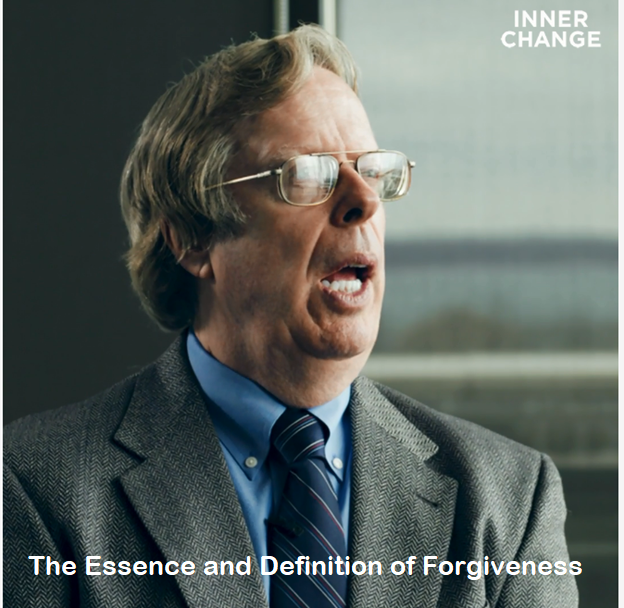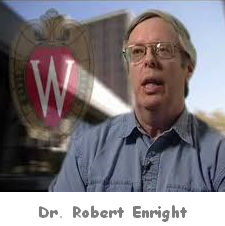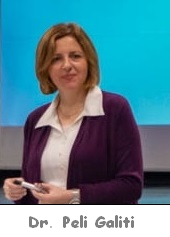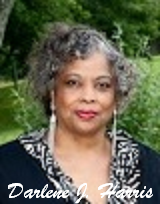Forgiveness News
The Essence and Definition of Forgiveness
A just-released video interview with forgiveness guru Dr. Robert Enright called “The Essence and Definition of Forgiveness” is now available to view at no cost on a website called Inner Change which bills itself as “a video journey into our collective humanity.”
The 2 min. 15 sec. video was recorded by a talented group of film producers based in Switzerland that has cinematic staff in the US and more than a dozen other countries around the world. It is one of 13 short video segments that Inner Change has recorded with Dr. Enright and which it will release over a 2-year period. Thus far, four of the Dr. Enright interviews have been made available for viewing including:
- The Essence and Definition of Forgiveness (2 min. 15 sec.) – In this interview, Dr. Enright defines forgiveness from an interdisciplinary, cross-cultural, and interfaith perspective that basically includes what Socrates would call the “essence” or core of forgiveness. He concludes by adding that the highest form of forgiveness is to unconditionally love those who hurt us.
- How I Became Involved in Forgiveness Studies (4 min. 16 sec.) – Dr. Enright explains how after years of studying moral development at the behest of his employer, the University of Wisconsin-Madison, he asked himself, “What might make a difference in the world in people’s lives?” The answer he came up with in 1985 was “the virtue of forgiveness” which he saw as a way to heal from the injustices we all face.
- The Two Paradoxes of Forgiveness (1 min. 0 sec.) – In this brief segment, Dr. Enright outlines the two paradoxes (apparent contradictions that are not contradictions) of forgiveness: 1) by forgiving, you are giving unexpected goodness to the person who hurt you; and, 2) in the process, you become stronger and emotionally healed.
- Learning to Forgive in the Small Things (3 min. 19 sec.) – By practicing forgiveness with the smaller hurts in your life, what Dr. Enright calls “exercising your forgiveness muscles,” you can become forgivingly fit and more easily handle the larger injustices in life.

Dr. Robert Enright, founder – International Forgiveness Institute
The Inner Change website includes interviews with psychologists, spiritual teachers, activists, and neurologists. Those interviews are part of the website’s “Peace Video Library” where visitors can “discover what it means to be fully human, what resources we all share, how we can tap into our full potential as humans.” Other website features include musical meditation segments following each video and a collection of more than 30 music videos all with original songs recorded at Chernobyl (the site of the 1986 nuclear power plant disaster) and the nearby ghost town of Prypiat in Northern Ukraine.
Other notable forgiveness-related personalities featured on the site include:
1) Marina Cantacuzino, founder of the Forgiveness Project, a nonprofit that collects and shares stories from both victims/survivors and perpetrators of crime and conflict who have rebuilt their lives following hurt and trauma;
2) Bill Pelke who forgave the young woman who murdered his grandmother by stabbing her 33 times with a butcher knife and who went on to found an organization called Journey of Hope–from violence to healing that provides support to families of murder victims; and,
3) Dr. Andrew Newberg, a physician and neuroscientist who studies the relationship between brain function and various mental states who is also a pioneer in the neurological study of religious and spiritual experiences (a field known as “neurotheology”) as demonstrated in his recent book The Rabbi’s Brain.
The Road to a Healthier Life in Your Golden Years
Exercise, get adequate sleep, eat right, reduce stress — you’ve probably been told to do all of these things to manage your health. All those actions contribute to a healthy lifestyle, and failing to follow them could lead you down a path of health issues and serious medical conditions. The risk of health problems due to poor lifestyle choices is even greater when you’re older.
The International Forgiveness Institute wants you to thrive throughout your life. If you’re a senior who hasn’t begun prioritizing your physical and mental health, here are some ways to get it under control.
Nourish Yourself
Eating healthy is not only important to keep your systems working smoothly, but according to Verywell Fit, it’s also important for weight management. Younger people might struggle to lose weight and stay thin, but older adults have different concerns.
The Academy of Nutrition and Dietetics explains that being underweight is unhealthy for seniors, and many seniors fall into this category. To keep your health under control, stick to a diet that hits all of your caloric and nutritional needs. A healthy, well-fed body is at a lower risk for heart disease, cancer, diabetes, stroke, and kidney disease.
Sleep Well
Most adults under-sleep, but it’s also possible to over-sleep. Family Doctor notes it’s important to get the right amount of sleep, specifically between seven and eight hours per night. If you find yourself having trouble falling asleep, staying asleep, or staying awake, then it’s time to adjust your sleep patterns to get on a regular schedule. Ample sleep will bring you energy, mental clarity, better moods, and relaxation from the chaos of daily life.
Healthline suggests you should turn off your electronics at least an hour before bedtime, take a relaxing bath, read a book, and meditate for a few minutes. Make sure to avoid caffeine after lunch or chocolate close to bedtime. If you suffer from Restless Leg Syndrome or sleep apnea, be sure to get the problem treated by a doctor so you can finally rest at night. Read: 15 Proven Tips to Get a Better Sleep.
Why You Should Start a Business Instead of Retiring
Retirement often seems like the last step after years of working but it usually leads to an unfulfilling and boring period of our lives. According to the AARP, many seniors are looking to entrepreneurship as a way to stay busy and motivate themselves in an exciting way.
There are plenty of reasons why seniors are starting new businesses too. Aside from the work being much more enjoyable than the typical 9 to 5 grind, it also lets us turn our hobbies into a career and create our own dream jobs.
And once you’ve decided to start your own business, the next step is just to get it off the ground and get going. After a basic plan is established and you learn how to start a business, all that’s left to do is start working your dream job and, who knows, maybe one day you’ll even be hiring employees!
Stress Less
Stress doesn’t show obvious signs like some medical conditions, but it can lead to serious complications if you let it get out of control. Besides leading to depression and anxiety, which the APA explains can result in poor quality of life, stress can actually cause death through cardiovascular disease. Reign in your stress by practicing meditation, developing hobbies that promote well-being, exercising, building relationships and community, and seeking help from a mental health professional when the stress feels like too much.
Get Outside
As we rely more and more on technology, we ultimately spend more time indoors. However, Psychology Today explains this isn’t healthy for us, either mentally or physically. So, whenever possible, spend some time in nature, whether that’s grabbing some new gear and hitting the trails or simply biking through a local park, hanging out in the sunshine and breathing plenty of fresh air can work wonders on your overall well-being.
Be Forgiving
Speaking of stress, when we hold on to resentment and anger, it builds up and eats away at us emotionally, contributing to our stress. Retirement is a time to enjoy the fruits of your labor and the life you’ve built. This is an especially good time to consider forgiveness. Whether it’s among family, friends or even forgiving yourself. Forgiveness allows you to let go of those pent up feelings holding you back from living your best life. And while forgiveness can feel like a challenge, when we learn to forgive, we are reinvesting in our loved ones and ourselves. For additional information on forgiveness for senior citizens, check out more of this International Forgiveness Institute website.
Your senior years are the time to reclaim your body and your mind, to preserve them as long as possible, and to reverse the damage done over the years. You can’t age backward, but you can control your quality of life so that aging forward is a positive experience. Put your health and happiness first to make the most of your golden years.
This article was written for the International Forgiveness Institute by Jason Lewis, a certified personal trainer who became the primary caretaker for his mother following her surgery in 2002. As he helped her with her recovery, he realized there is a growing need for trainers who can assist seniors in their own homes and communities. With a degree in Health Science and Human Performance, Jason works with medical professionals and other personal trainers to create programs that are customized to the special health needs of those over the age of 65. Visit his website, packed with health information for seniors and their caregivers, at strongwell.org.
homes and communities. With a degree in Health Science and Human Performance, Jason works with medical professionals and other personal trainers to create programs that are customized to the special health needs of those over the age of 65. Visit his website, packed with health information for seniors and their caregivers, at strongwell.org.
Free on YouTube – Watch Dr. Robert Enright’s Greek Forgiveness Education Presentation
In case you missed it, you can now watch Dr. Robert Enright’s presentation during yesterday’s (Feb. 4) Greek Forgiveness Education webinar, on YouTube–for free. Details about the webinar can be found in the article posted immediately below this one.
The unique webinar was broadcast live via Zoom video conferencing from Greece. More than 4,500 individuals participated in the webinar or have watched the YouTube video since it was posted.
Dr. Enright, Professor of Educational Psychology at the University of Wisconsin-Madison and founder of the International Forgiveness Institute (IFI) was the featured presenter for the webinar. His topic, “The Healing Value of Forgiveness from the Aristotelian Philosophical Perspective,” has special significance in Greece because Greek philosophers like Aristotle not only helped shape the world some twenty centuries ago, but they are still very much alive in the principles underlying what is being taught in the country today.
“I have been relying on Aristotle for 35 years,” Dr. Enright said in his opening remarks during the webinar–the same length of time he has been studying the “moral virtue” (Aristotle’s term) of forgiveness. “The English translation of what Aristotle described as a moral virtue is ‘magnanimity’ or ‘largeness of heart,’” Dr. Enright added–what he calls the very essence of forgiveness.
Following Dr. Enright’s presentation, Dr. Peli Galiti, Director of the IFI’s Greek Forgiveness Education Program spoke on “The Way to Forgiveness: From Theory to Practice.” For the past eight years, Dr. Galiti has been conducting Forgiveness Education training workshops for Greek teachers. During that time, she has trained more than 600 teachers to use the Forgiveness Education Program developed by Dr. Enright which is now being taught to more than 6,000 Greek students.
Free Forgiveness Education Webinar on Feb. 4 Featuring Dr. Robert Enright and Dr. Peli Galiti
FORGIVENESS:
PRACTICAL APPLICATIONS OF A TIMELESS VIRTUE
Live Internet Event
Thursday, February 4, 2021
7:00 p.m. EET (Eastern European Time)
MEETING TIME CONVERSIONS
U.S. – EST – Noon
U.S. – CST – 11:00 a.m.
U.S. – MST – 10:00 a.m.
U.S. – PST – 9:00 a.m.
GMT – 5:00 p.m.
REGISTRATION REQUIRED NO LATER THAN TUESDAY, FEBRUARY 2, 2021
The program for this one-of-a-kind free webinar includes presentations by:
- Robert Enright, Professor of Educational Psychology at the University of Wisconsin-Madison and founder of the International Forgiveness Institute (IFI) – “The healing value of forgiveness from the Aristotelian philosophical perspective.”
- Peli Galiti, Researcher in the Department of Educational Psychology at the University of Wisconsin-Madison and Director of the IFI’s Greek Forgiveness Education Program – “The Way to Forgiveness: From Theory to Practice.”
- Konstantinos Kornarakis, Professor of Christian Ethics – Bioethics in the Department of Theology of the Theological School of the National and Kapodistrian University of Athens – “Functional and dysfunctional aspects of forgiveness in texts of the ascetic Christian literature.”
- Konstantinos Bikos, Professor of School Pedagogy and New Technologies in the Department of Philosophy and Pedagogy, the Aristotle University of Thessaloniki – “Socio-emotional and moral development of the Greek student: the contribution of education to forgiveness.”
The webinar has been organized by Dr. Peli Galiti, Ph.D., M.Ed., and her associates at the University of Athens (where she was previously a lecturer in the University’s School of Education) and the Aristotle University of Thessaloniki (A.U.Th.). For the past eight years, Dr. Galiti has been conducting Forgiveness Education training workshops for Greek teachers and for the past five years that training has been in collaboration with A.U.Th. During those eight years she has trained more than 600 teachers to use the Forgiveness Education Program which is now being taught to more than 6,000 Greek students.
The author of two books, Dr. Galiti has received funding for her work in Greece from the prestigious Stavros Niarchos Foundation, established by Stavros Spyros Niarchos, an Athens native who assembled and operated the largest shipping fleet in the world before his death in 1996. A descriptive video (4 min. 11 sec.) of the Greek Forgiveness Program is available at this YouTube link or you can visit the Greek Forgiveness Education website.
The International Forgiveness Institute’s widely-acclaimed Forgiveness Education Program was developed by Dr. Enright along with collaborating curriculum experts and experienced teachers. Using children’s story books (many by Dr. Seuss) and Social Emotional Learning (SEL) techniques, the Program teaches students about the five moral qualities most important to forgiving another person–inherent worth, moral love, kindness, respect and generosity. The Program is now being used in more than 30 countries around the world.
Additional Webinar Information: 1) Dr. Enright’s opening presentation will be delivered in English while the other three presentations will be in Greek with no English translation or subtitles; 2) The event will take place online on the ZOOM platform for free; 3) Registration must be completed by Tuesday, Feb. 2; and, 4) The link to the meeting will be sent to registered participants by e-mail on the eve of the event; and, 5) More than 700 people have already registered for the webinar.
Registration Form Translations:
1. Last name:
2. First name:
3. Email address:
4. Questions(s) you would like to ask the speakers about forgiveness (optional):
5. Which speaker(s) should answer your question (optional):
6. I accept the Privacy Policy:
7. I would like to receive more information about similar events (I Agree/Disagree):
Forgiveness – the Cost, the Risk for Peace and Joy
A guest article by author Darlene J. Harris.
Have you ever thought to yourself, “Hell will freeze over before I forgive that person for what they did to me.”? Read that statement again. Can you feel the anger, rage, resentment, and revenge in those words? Are you willing to consider giving up the emotions that fuel feelings like those? Are you willing to consider forgiveness in order to trade your bitterness for joy?
Consider the Cost
Anything worthwhile comes with a cost. You and I must decide if forgiveness is worth the effort and risk.
I asked several friends what forgiveness cost them and what their life was like before they found forgiveness. This is what they said:
- Estelle said, “The cost to me was releasing my need to control. It was also the uncontrollable desire to be angry, bitter, and hateful. I was always ready to remind the person how they hurt me. I never forgot the betrayal. I delighted in those feelings. I had no plan to give them up. Who would I be if I gave in?”
- Connie said, “I lost myself, daily accepting negative reminders and perspectives of who I thought I was. Some days I felt my energy drain from me and my broken spirit cried out. Because I felt narratives were true, I gave into their description of who I was. If I gave them up, who would I be?”
- Randy shared, “I felt the injustice and unfairness of the pain. I was anchored to the past. Holding on to it gave me a sense of security against the pain. The poison of bitterness and anger ran through my veins. I was on edge every day.”
Pain is the emotional risk with forgiveness. It causes us to question ourselves. Who will you be if you give up bitterness and pain? Will you be accepted, or rejected and abandoned? Will you be welcomed and loved? These are questions that every human yearns to know.
Forgiveness is frightening because you expose the hidden parts of yourself. You move from the known to the unfamiliar aspects of your heart. It is risky and often hard! But it works!
The Forgiveness Journey
Forgiveness is not forgetting the wrong done to you—you don’t seek an apology; you don’t have to reconcile. Forgiveness is not seeking revenge or justice. It is not living in the past.
Forgiveness is a deliberate decision to live without resentment and anger. It offers the one who hurt you what they don’t deserve. Forgiveness brings peace and joy.
It is a continuous journey to maintain peace and joy. It’s hard. You will experience disappointment and discouragement. Processing these feelings, caring for yourself, and growing in wisdom is essential. It doesn’t mean you will always be happy. Instead, happiness is a by-product of the journey.
I’ve learned that you should not go on the forgiveness journey alone. As a Christian, I receive God’s grace through His Son, Jesus Christ. God is close to me when I am in pain. He cries for me when I can’t cry for myself. You might find that going it alone is not the best way for you. You can invite God into your journey, too.
A Higher Power
While I refer to God, you may refer to a Higher Power. Alcoholics Anonymous (AA) and other Twelve-Step Programs use this term to refer to a supreme being, deity, or a different perception of God. They have found it therapeutic to aid a power higher than yourself. Step Two of the Twelve Step Program is: “Came to believe that a power greater than ourselves could restore us to sanity.”
Most people find they need someone who can come alongside and be there for them. You want someone who will listen to your pain. Someone who will cry with you and for you. Someone who can love and protect you. You want a love that feels safe. Someone you can go to no matter what.
A child in pain goes to their parent, hoping they will comfort them. We also want to know God, our Creator will do the same for us.
Freedom Is Worth It
Forgiving for the first time was difficult for me. It might be for you, too. But forgiveness propels us towards new choices and a hunger for life.
I traded unforgiveness for joy. While it seems risky, it is a risk you can manage. Freedom and peace are the results when you do the work. I don’t know if freedom or peace are vital to you, but I know you won’t encounter them until you forgive. Gather your courage. Start your forgiveness journey today! It is worth the risk to obtain joy!
Learn to forgive at the International Forgiveness Institute.
Editor’s Note: This article was written exclusively for the International Forgiveness Institute by Darlene J. Harris–a sought-after speaker, author, and the developer/leader of workshops and retreats for women, primarily on the topics of sexual abuse and molestation.
An abuse survivor, Darlene was raped twice before she reached the age of 18. Read her amazing story in her own words at My Forgiveness Story. Through her faith, an enlightening counselor, and forgiveness, Darlene turned her world around and reached out to help others. The mantra that drives her is: “I don’t want anyone to hurt like I did.”
To learn more about those emotional topics, visit the website Darlene created and manages: And He Restoreth My Soul Project. Her anthology book And He Restoreth My Soul, is designed to equip professional counselors, religious leaders, and concerned individuals with the tools to help and protect the abused.






